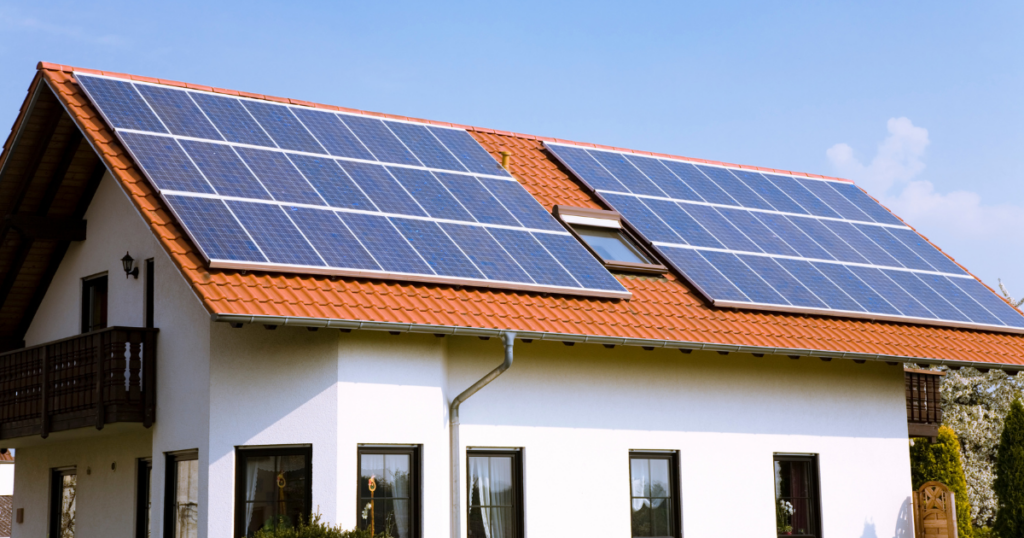What Are Solar Panels?
Solar panels are devices that convert sunlight into electricity. They are made up of photovoltaic (PV) cells, which absorb sunlight and turn it into usable energy. The energy generated by solar panels can power your home’s electrical systems, reducing reliance on the grid and lowering monthly electricity bills.
Benefits of Solar Panels for Homes
- Lower Energy Bills: One of the most significant advantages of solar panels is the reduction in energy costs. By generating your own electricity, you can significantly lower your monthly utility bills. In many cases, homes with solar panels can even eliminate their electricity bills entirely, depending on the size of the installation.
- Increase in Property Value: Installing solar panels can increase the value of your home. Many homebuyers are now seeking properties with sustainable energy solutions, making homes with solar panels more attractive on the market. Studies have shown that homes with solar panels often sell faster and at higher prices than those without.
- Environmental Impact: Solar panels are a clean source of energy that produce no harmful emissions. By using solar power, you are helping reduce your carbon footprint and supporting efforts to combat climate change. Solar energy is renewable, meaning it will not run out as long as the sun shines.
- Energy Independence: With solar panels, you can become less reliant on the grid, especially during power outages or in remote areas where energy supply may be inconsistent. Many solar panel systems include battery storage, which allows homeowners to store excess energy generated during the day and use it at night or during cloudy periods.
- Government Incentives: Many governments offer incentives, rebates, or tax credits for homeowners who install solar panels. These programs can significantly reduce the initial cost of installation, making solar power more affordable for homeowners.
How Solar Panels Work
Solar panels work by harnessing sunlight and converting it into electricity through the photovoltaic cells. These cells are connected to an inverter, which transforms the DC (direct current) electricity into AC (alternating current) electricity, which is used by most household appliances. Excess energy can be stored in batteries or sent back to the grid, depending on the system’s setup.
Choosing the Right Solar Panel System
When considering solar panels for your home, it’s important to select the right system for your needs. Factors like your home’s location, roof space, and energy consumption will all play a role in determining the size and type of system you should install. Consulting with a professional solar panel installer can help you make the best choice.
Conclusion
Solar panels for homes are not only a great way to reduce energy costs but also an investment in the future of the planet. With long-term financial benefits, environmental advantages, and the potential to increase property value, installing solar panels is a smart choice for homeowners looking to make their homes more energy-efficient and sustainable.

